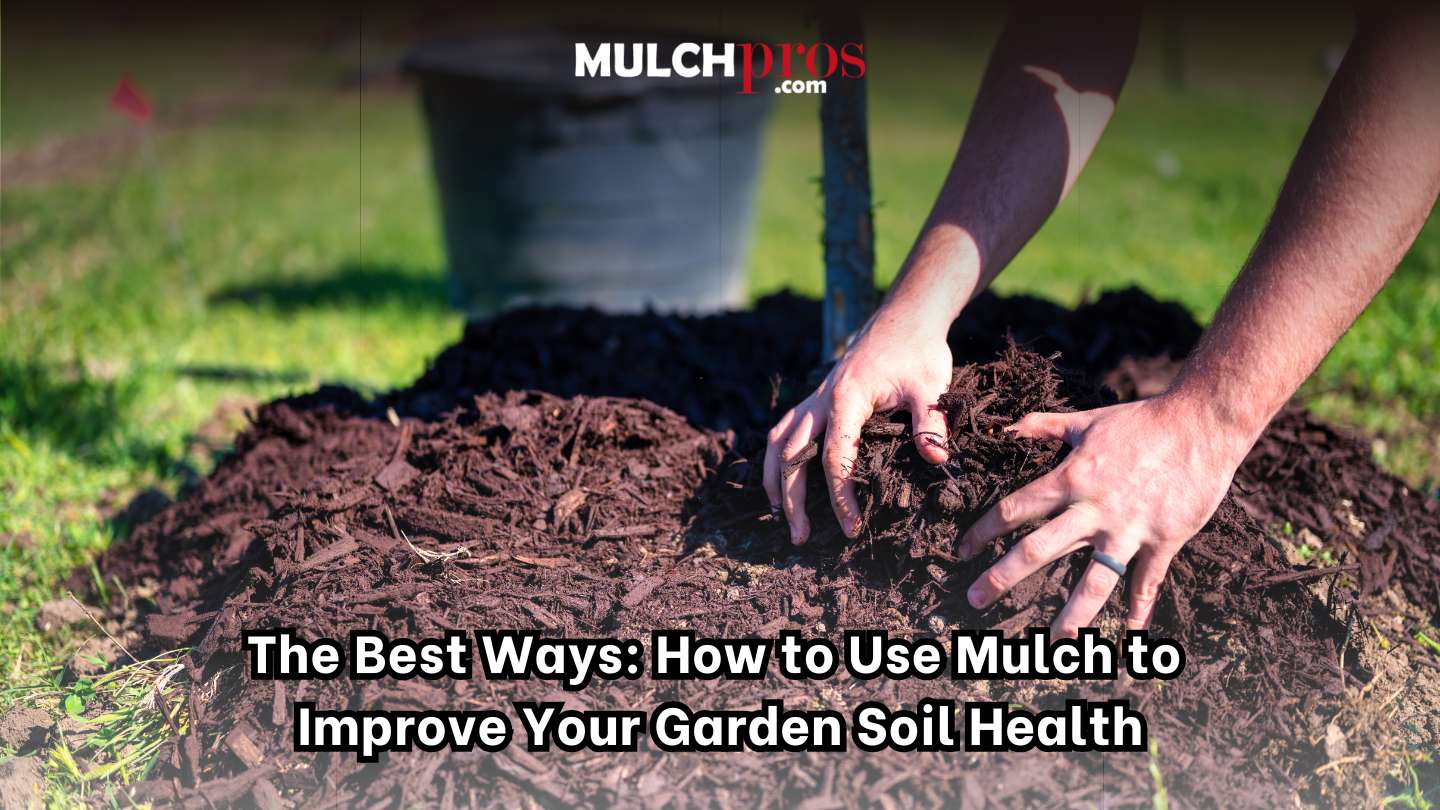Wondering how to use mulch to improve your garden soil health effectively? Mulching can help retain moisture, reduce weeds, and boost soil nutrients. In this guide, we’ll explore the best types of mulch, how to apply them, and tips to maximize their benefits. Get ready to transform your garden’s health and vitality.
Key Takeaways
- Mulch enhances soil health by preventing compaction, retaining moisture, and regulating temperature, which supports robust plant growth.
- Choosing the right mulch—organic for nutrient and soil structure enhancement or inorganic for low maintenance—depends on plant type and local climate.
- Proper application and maintenance of mulch, including avoiding excessive amounts and regular refreshment, are crucial for maximizing its benefits in the garden.
What is Mulch and Why It Matters for Soil Health
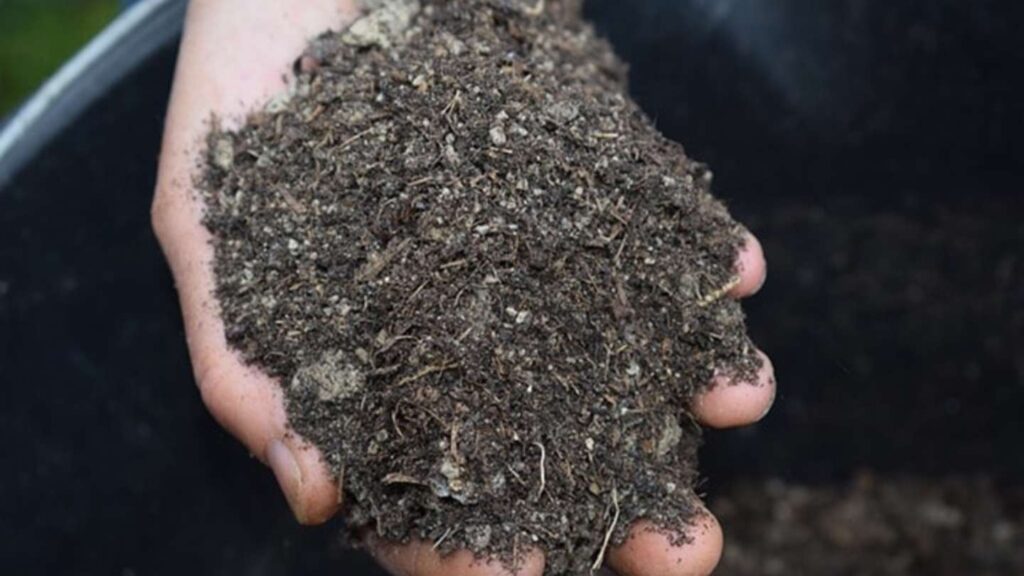
Mulch serves as a vital protective layer for the soil around trees and plants, crafted from either organic substances like leaves, grass clippings, and bark or inorganic materials such as stones and rubber. The purpose of this cover is multifaceted. It maintains moisture levels within the soil, minimizes weed proliferation, shields plant roots from extreme conditions, and helps moderate temperature fluctuations in the ground.
Applying mulch to your garden plays a critical role in improving the health and structure of the soil. It prevents compaction of the earth, allowing plant roots easier access to water and essential nutrients while also stabilizing root environments through consistent temperature regulation and maintenance of appropriate moisture content.
Organic mulches are especially advantageous due to their ability to retain water effectively while simultaneously sheltering plant roots from varying climates—enhancing overall soil quality—and naturally suppressing weeds without frequent weeding requirements by gardeners. This leads not just towards reduced labor but also fosters an enriched ecological setting conducive to vibrant growth within one’s garden.
Types of Mulch: Choosing the Right One for Your Garden
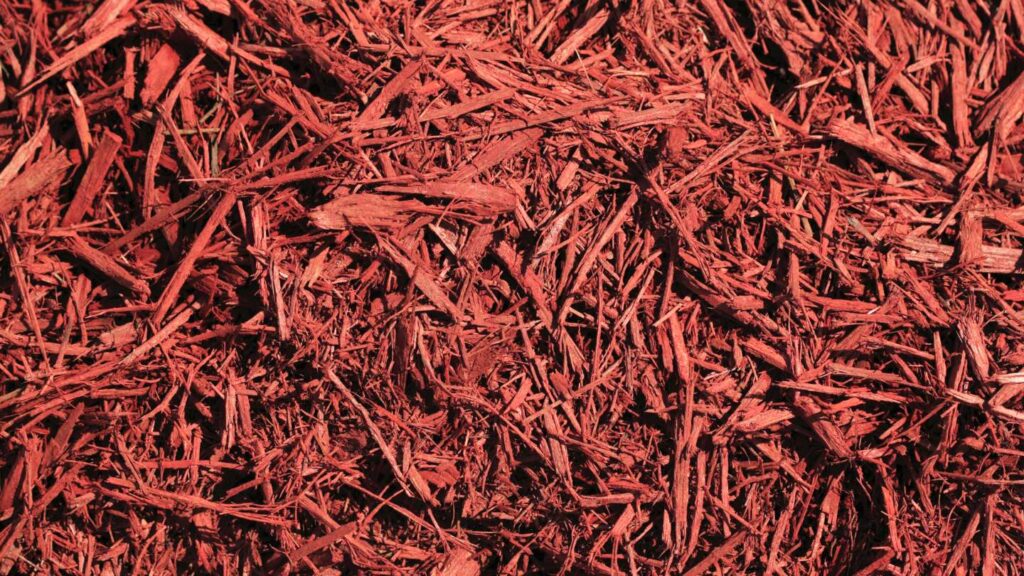
Selecting the appropriate mulch for your garden involves assessing various elements, including plant species and regional climate conditions. Mulches can be broadly divided into two groups: organic and inorganic. Organic options such as compost, leaves, bark chips, and grass clippings are particularly advantageous as they contribute to improving soil fertility by enhancing its nutrient profile during decomposition. These are especially beneficial in environments like vegetable gardens and flower beds, where they bolster soil structure and microbial health.
While inorganic mulches such as gravel, stones, or rubber may provide low-maintenance solutions, their environmental benefits are limited compared to organic mulches. For instance, Brown Mulch and Black Mulch are versatile organic choices that not only enhance soil health but also add aesthetic appeal by complementing various landscape designs. Rubber mulch, for example, does not decompose and may release chemicals into the soil over time, making it less suitable for gardens focused on long-term soil health. Instead, organic mulches offer a sustainable approach by naturally enriching the soil and supporting ecological balance.
When selecting a type of mulch for your garden, prioritize options that complement your plant varieties. For instance, wood chips work well in flower beds, while straw may better support vegetable gardens due to its rapid decomposition and nutrient contribution. Always ensure an even application, typically 2–3 inches thick, to maintain hydration and prevent weed growth while leaving space around plant stems to avoid suffocation.
Read more: How to Use Mulch to Improve Your Garden Soil Health
How Mulch Improves Soil Structure
Mulch serves as a vital protective layer over the soil, mitigating compaction and promoting healthier root systems by shielding against compression. Compacted soils obstruct water absorption and nutrient availability, posing challenges for root growth. The cushioning effect of mulch lessens the force of rain impact on the soil, minimizes erosion, and enhances air penetration—critical for robust root development.
Organic mulches are especially beneficial in creating a nutrient-rich environment for microorganisms that recycle nutrients and support plant vitality. As they decompose, organic materials like bark or grass clippings improve soil fertility and structure, creating an optimal setting for plant growth. These types of mulch are not just protective but actively enhance the soil ecosystem, making them ideal for gardens prioritizing long-term health and sustainability.
While inorganic mulches such as gravel may prevent compaction, they do not contribute nutrients to the soil or foster microbial life as organic mulches do. For gardeners focused on improving soil quality, organic mulches are the superior choice.
Moisture Retention and Temperature Regulation with Mulch
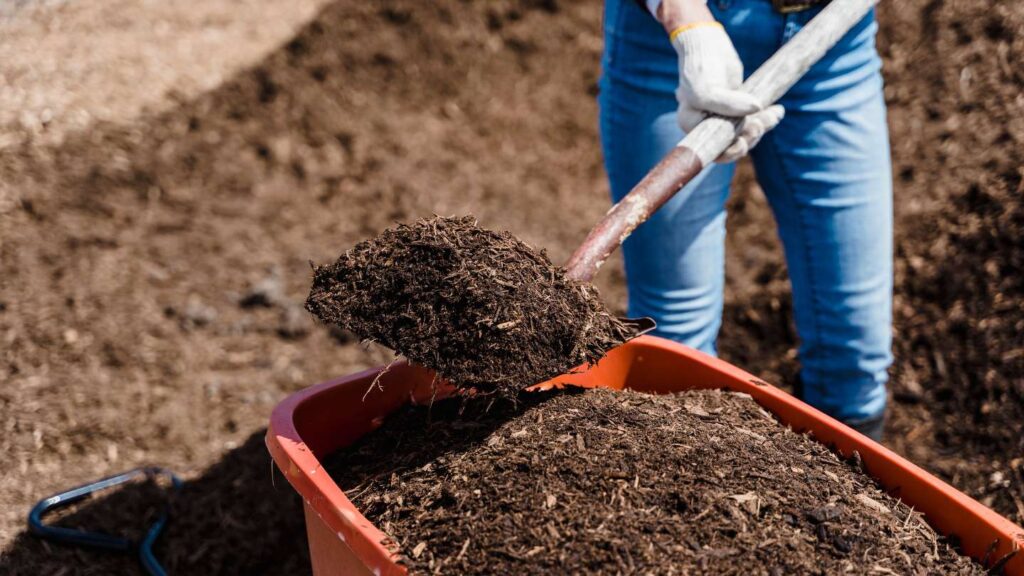
Mulch serves as a critical tool for maintaining soil moisture, significantly reducing the rate of water evaporation. This consistent level of hydration is vital for robust plant health, especially during periods when preserving water becomes imperative due to limited rainfall. Our professional mulching service ensures optimal moisture retention by expertly applying the right mulch at the desired depth for your specific garden needs.
By acting as a barrier between the soil and intense sunlight, mulch plays an essential role in moderating soil temperatures. It helps prevent excessive heat from reaching the roots in warm weather while providing thermal insulation that keeps soils warmer during cold snaps—shielding sensitive plant roots from extreme temperature fluctuations. Our team uses high-quality organic materials to enhance soil structure and regulate soil temperature effectively.
To ensure effective protection against varying temperatures throughout the year, our experts apply fresh layers of mulch both in spring and autumn. Sustaining a uniform layer around plants aids in fostering stable conditions within their root environments, mitigating stress and enabling more vigorous development across your vegetation. Trust our professional service to manage your mulching needs, ensuring your garden maintains its health and vitality all year round.
Nutrient Addition Through Organic Mulches
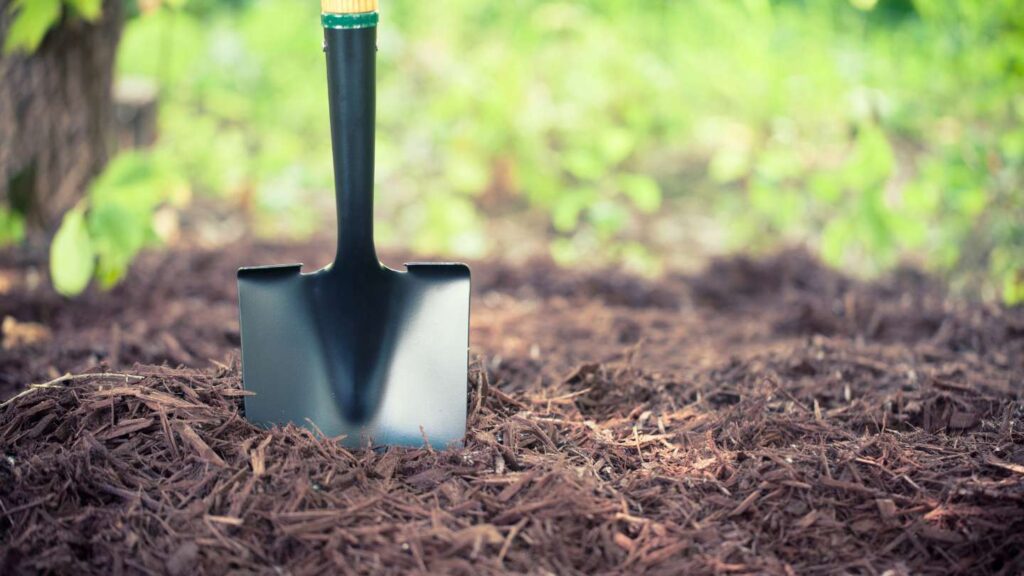
Organic mulches serve a dual purpose: they not only fortify and ameliorate soil structure but also contribute essential nutrients to the soil as they decompose. These materials, originating from plant or animal sources, gradually break down, infusing the soil with critical nutrients that bolster plant development. This gradual release of nutrients acts as an organic fertilizer for your garden.
By engaging our professional mulching service, you ensure that organic mulch, such as compost, is expertly applied to your vegetable gardens. Our team selects high nutrient-content materials to enhance soil structure, moisture conservation, and boost microbial life within the earth, ensuring your garden achieves optimal health.
While wood chips are another well-regarded choice for organic mulch capable of improving soil quality, our experts pair them with nitrogen-dense fertilizers to prevent nutrient depletion during their breakdown process. This ensures your garden receives the balanced sustenance needed for robust growth.
By incorporating these natural substances into your garden’s mulch strategy, our professional service improves immediate growing conditions while fostering sustained vitality and fecundity in your soil over time. Trust us to ensure your plants acquire all necessary sustenance required for thriving growth.
Steps to Properly Apply Mulch in Your Garden

Properly applying mulch in your garden can significantly improve soil health and plant vitality. Here’s a quick guide to how our professional service can enhance your garden:
- Our experts wait until the soil has thawed and retained moisture before beginning to ensure optimal conditions.
- We define mulching areas using natural boundaries or edging, maintaining a neat appearance that complements your landscape design.
- Our team measures the square footage of your garden beds and calculates the ideal mulch depth, typically 2–3 inches, for maximum effectiveness.
- We select high-quality organic materials like bark or compost, which add significant soil benefits and improve plant health.
- Using specialized tools such as rakes and hoes, we spread the mulch evenly, ensuring a consistent layer that supports plant growth.
- Our professionals maintain a gap of at least 3 inches between mulch and plant stems to prevent smothering or rot, safeguarding your plants.
- We thoroughly water the mulched areas after application to help the material settle and integrate with the soil.
- For optimal results, our team times mulching after rainfall to enhance natural decomposition and nutrient release.
By engaging our professional mulching service, you’ll create a healthier environment for your plants, ensuring they receive the necessary nutrients and protection. Remember, a well-mulched garden supports robust plant growth and soil health, enhancing the overall beauty and productivity of your garden.
Best Practices for Maintaining Mulched Areas
To ensure your garden remains vibrant and healthy, it’s crucial to engage professional services for maintaining mulched areas. Our expert team applies a fresh, top layer of mulch, no more than 2 inches thick, to rejuvenate your garden’s appearance and sustain its ability to retain soil moisture and hinder weed growth.
Our professionals integrate old mulch with new material by raking, which prevents soil compaction and enhances oxygen flow. We swiftly remove weeds by hand before they can spread through the mulch, competing for nutrients and water. Installing a border around these areas is another service we provide to keep mulch contained during periods of intense rainfall.
Routine monitoring by our skilled team ensures your garden’s mulch coverage remains optimal. We proactively address any issues with weed proliferation or pest invasions, ensuring your beds stay fertile and vibrant throughout each growing season. Trust our professional services to keep your garden thriving with minimal effort on your part.
Special Considerations for Vegetable Gardens
Vegetable gardens have specific mulching needs that prioritize soil fertility and water conservation. Organic materials such as grass clippings, leaf litter, or straw are ideal for vegetable gardens as they decompose quickly, enriching the soil with essential nutrients and improving its structure. These options also support microbial life, which is critical for plant health.
Apply a 2–3 inch layer of organic mulch around vegetables, ensuring consistent coverage while leaving space around plant stems to prevent decay. This depth effectively suppresses weeds and retains moisture, creating an optimal growing environment. Avoid using inorganic mulches like rubber or gravel in vegetable gardens, as they do not enhance soil quality or provide nutrients.
Reapply organic mulch every few months to maintain its effectiveness, particularly during peak growing seasons. This ensures your vegetable garden remains productive and well-nourished throughout the year.
Avoiding Common Mulching Mistakes
To maximize the benefits of mulching, avoid common pitfalls. Using an excessive amount of mulch can suffocate roots and trap moisture, leading to plant damage. Conversely, applying too little mulch fails to suppress weeds or retain adequate moisture.
Keep mulch several inches away from plant stems to prevent rot or suffocation. Avoid creating ‘mulch volcanoes’ around tree bases, as this practice hinders airflow and may cause root issues. When mulching in early spring, wait until the soil has warmed sufficiently; applying mulch too early can trap cold air, delaying seedling growth.
It’s also essential to choose high-quality organic mulch over dyed or synthetic options that may leach harmful chemicals into the soil. Organic mulches not only support plant health but also promote a sustainable garden ecosystem. For consistent results, remove weeds and refresh your mulch layer regularly.
Read more: Control Weeds Naturally and Effectively With Mulch
Summary
Mulching is a vital gardening practice that offers a wealth of benefits, from enhancing soil structure and moisture retention to regulating temperature and enriching the soil with nutrients. By choosing the right type of mulch for your garden and applying it correctly, you can foster a healthier, more resilient environment for your plants. Whether you opt for organic mulch like compost and grass clippings or inorganic mulch such as gravel and rubber, understanding your garden’s specific requirements will help you make the most informed choice.
Mulch Pros Landscape Supply, a premier landscape supply serving Alpharetta, is dedicated to supporting your gardening endeavors by providing high-quality mulch solutions tailored to your needs. By following the steps and best practices outlined in this guide, you can cultivate a vibrant, thriving garden. Remember, a well-mulched garden not only enhances aesthetic appeal but also promotes robust plant growth and soil health. Contact us today to elevate your garden’s potential!
We proudly offer our services in Cumming, Johns Creek, Milton, Sandy Springs and Rosewell. Trust us to provide the ideal materials and exceptional service to enhance outdoor projects in these areas.
Frequently Asked Questions
How often should I reapply mulch in my garden?
You should reapply mulch every few months or after heavy rains when it appears faded or thin. A fresh layer of up to 2 inches is ideal for maintaining its effectiveness.
Can I use grass clippings as mulch for my vegetable garden?
Absolutely, grass clippings are an excellent organic mulch for your vegetable garden as they decompose quickly and enrich the soil with nutrients. Just ensure they are dry and free from chemicals for the best results.
What is the best depth for applying mulch?
The best depth for applying mulch is 2 to 3 inches, as this amount effectively retains moisture and suppresses weeds. This depth strikes a balance, allowing for benefits without suffocating the plants.
Should I remove old mulch before adding new mulch?
You don’t need to remove old mulch; just rake and mix it with the new material to enhance aeration and prevent soil compaction. This approach helps maintain a healthy garden environment.
Are there any types of mulch I should avoid using?
You should avoid using dyed mulches that may leach harmful chemicals into the soil and poorly rotted manure, which can damage plant leaves. Choosing the right mulch type is essential for the health of your garden.


